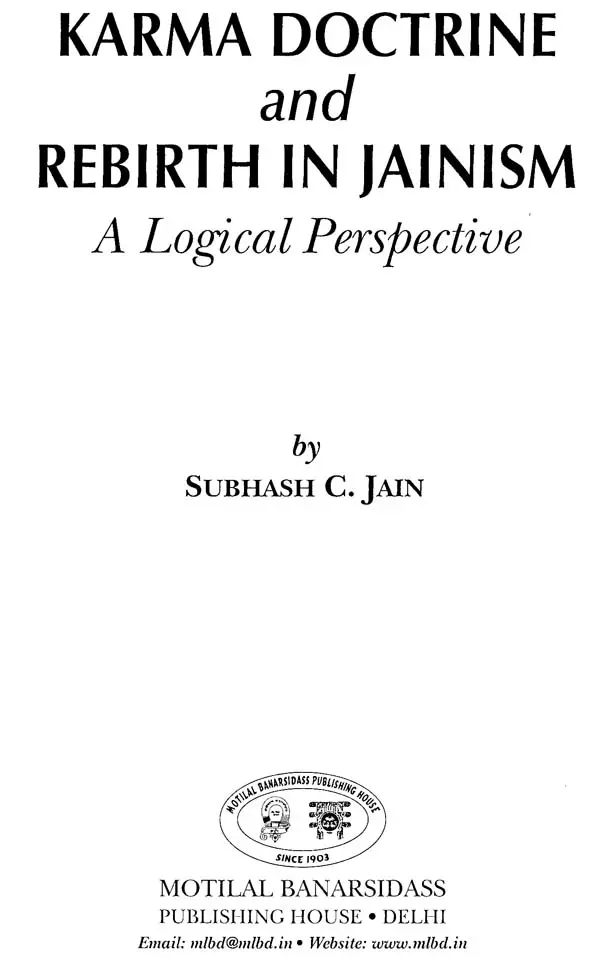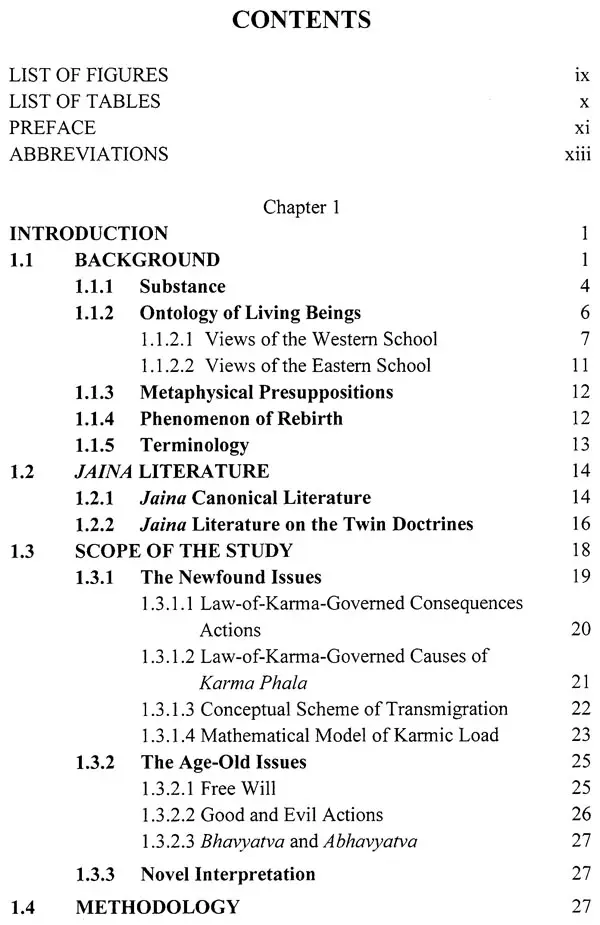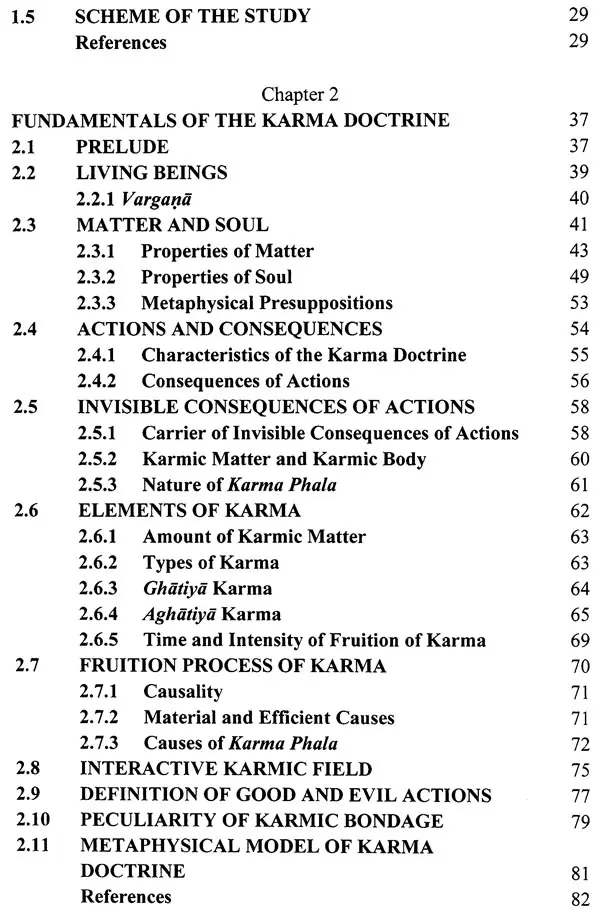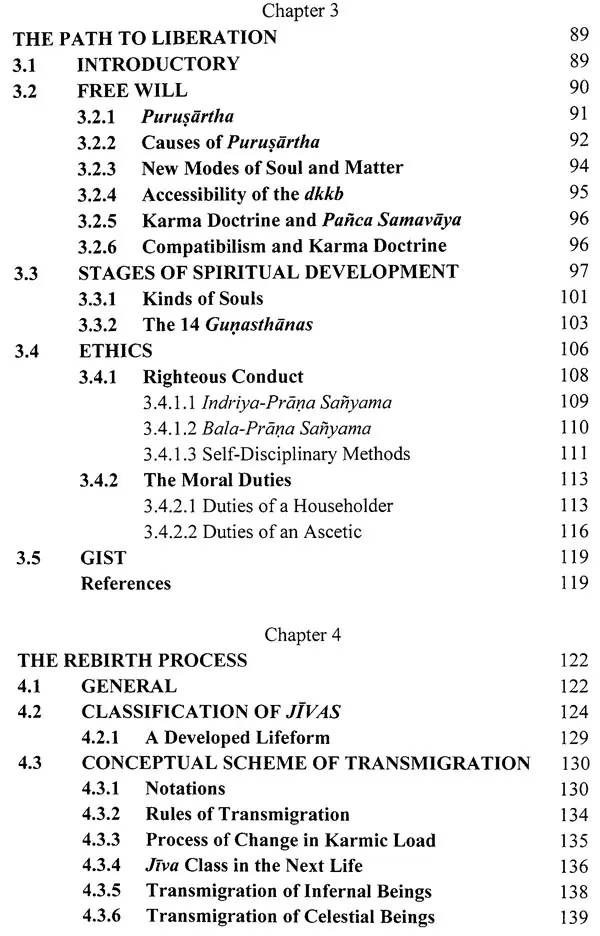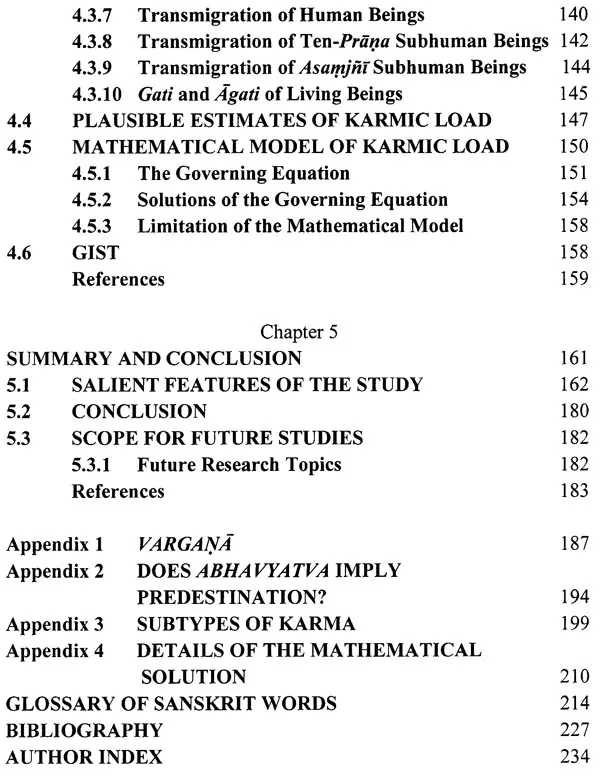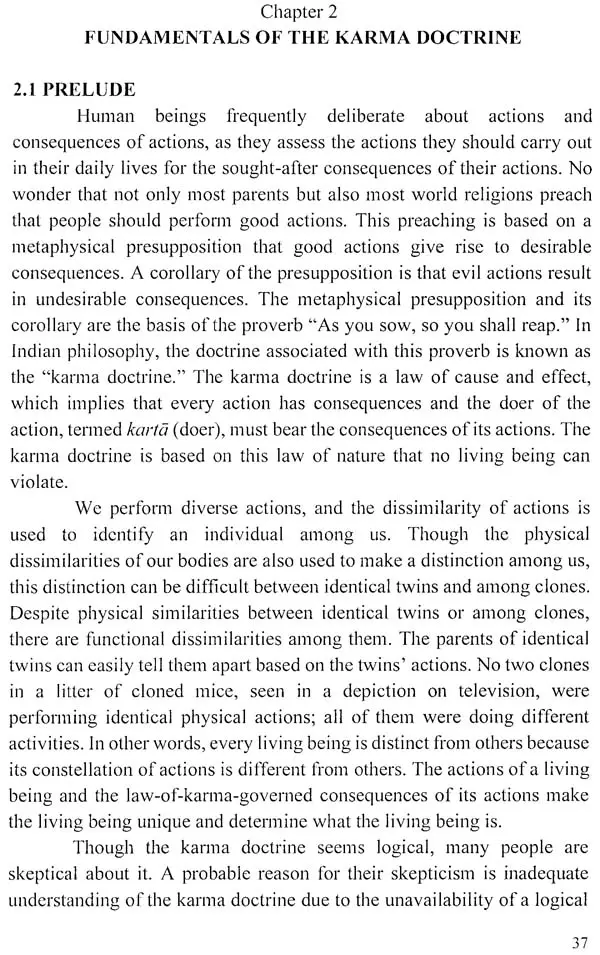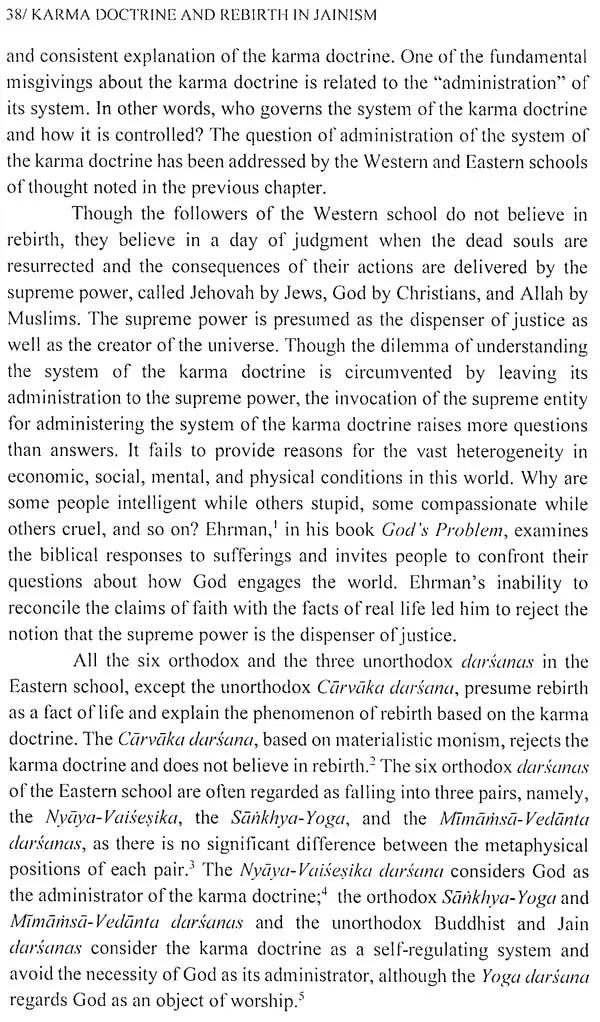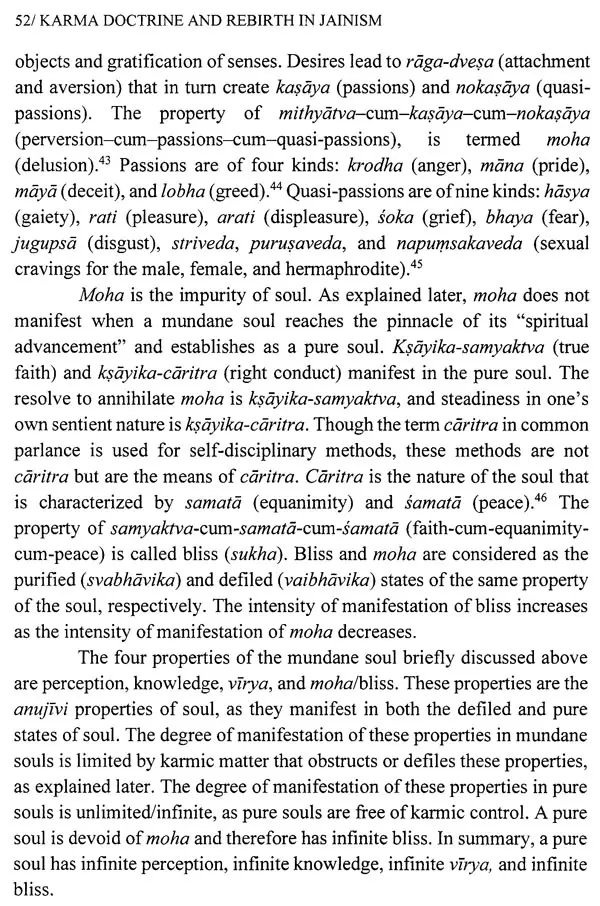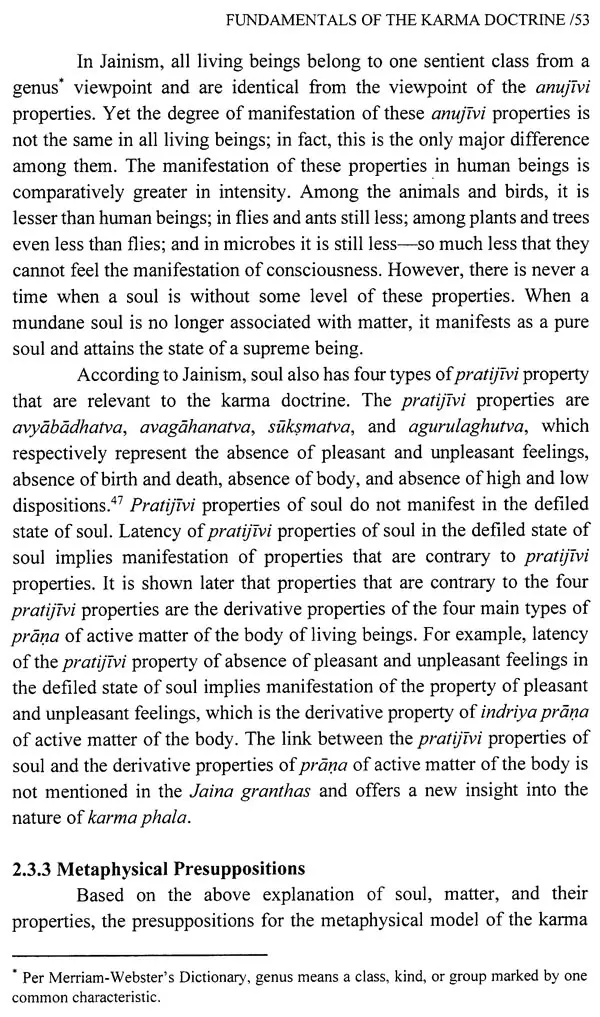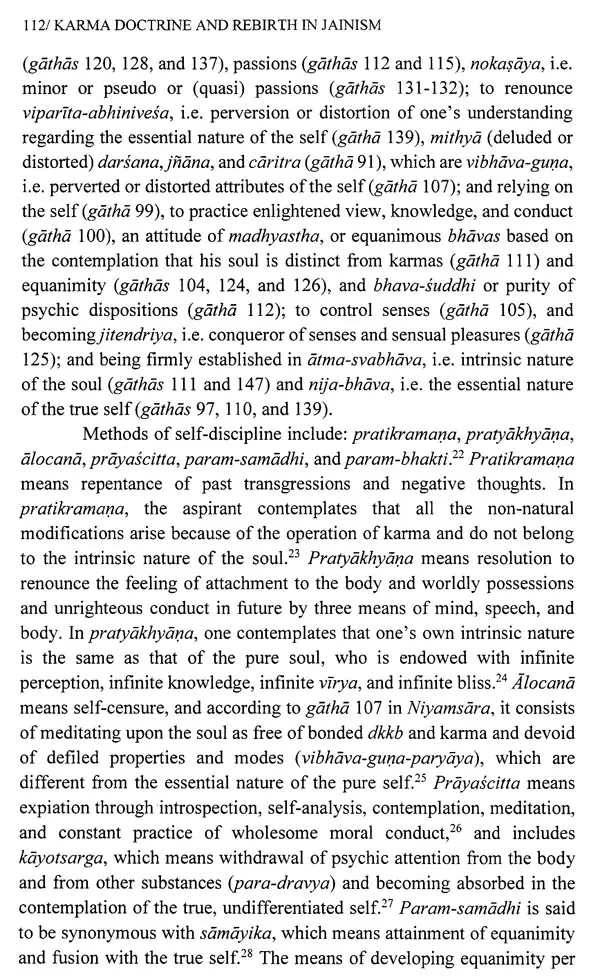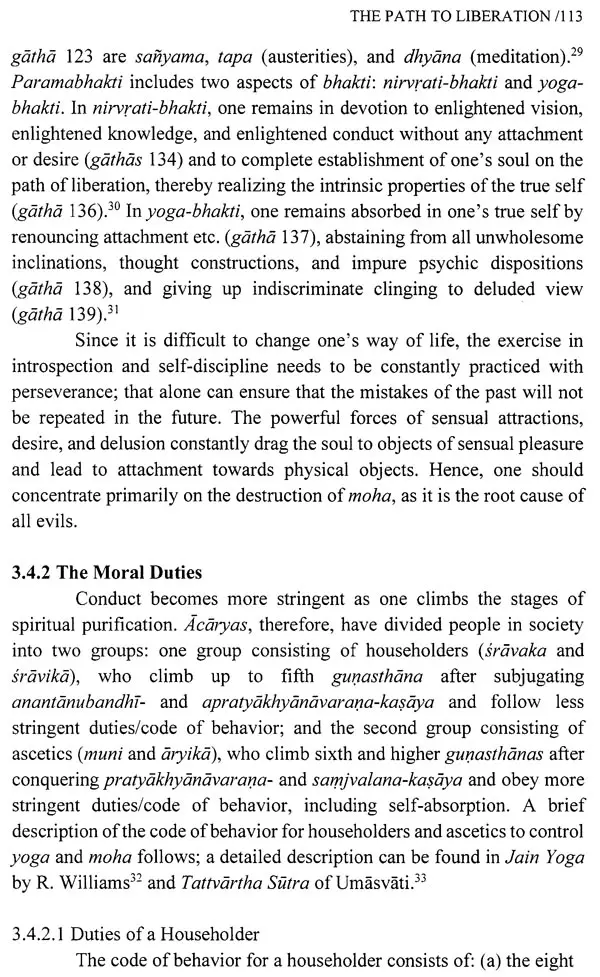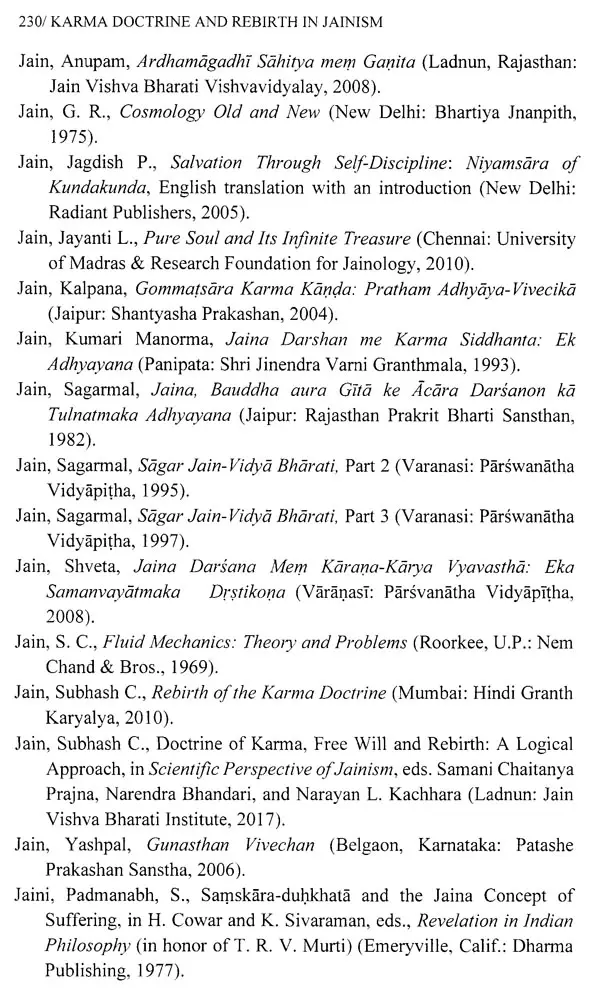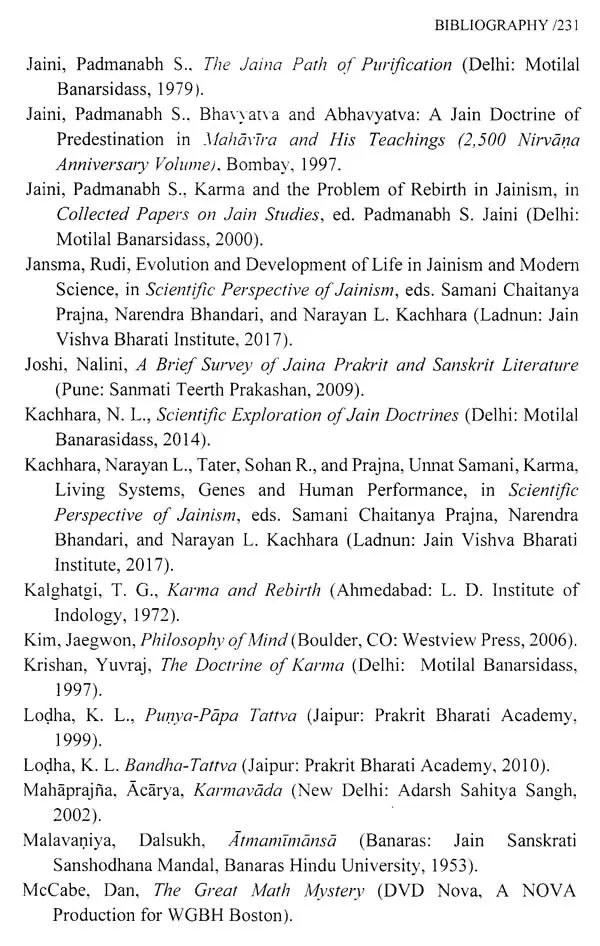About the Book The twin doctrines of karma and rebirth are the most misunderstood topics in the field of metaphysics, but it does not have to be that way. This book not only describes the twin doctrines methodically and logically, but it also solves the four new-found issues and the three age-old issues related to the twin doctrines. This book is the result of an attempt to develop a model of the karma doctrine that is free from inconsistencies.
All consequences of actions and all causes of karma phala are not governed by the karma doctrine. The answer to the question "What type of consequences of actions and what type of causes of karmaphala are governed by the karma doctrine" is explicated to avoid the misinterpretation of the karma doctrine, which in turn leads to controversies. A conceptual scheme of transmigration of living beings from the least developed to most developed life-form that introduces new insights in the rebirth process is presented. The author, who has Ph. D degrees in both Engineering and Jainology, is able develop an introductory mathematical model of the karmic load to study the functional insight of the rebirth process. The issues of free will, good and evil actions, and bhavyatava and abhavyatava are resolved using the answers to the new-found issues.
About the Author DR. SUBHASH C. JAIN is Professor Emeritus in the Department of Civil & Environmental Engineering at The University of Iowa, Iowa City, Iowa, USA. He has published several articles, authored three books, and presented many lectures on the karma doctrine. He is keenly interested in delving into the nature of reality.
Introduction Innumerable living beings, including millions of human beings, are born and die every year in the world.' Whom do living beings come from? Where do they go after death? Will living beings after death come back in a new body, whether human, subhuman, or some other being? In addition to such queries on rebirth of living beings, them are questions related to the vast heterogeneity in shapes and sizes of their bodies and in the characteristics of human beings. Why are some people born healthy while others ill, some intelligent while others stupid, some compassionate while others mud, some rich while others poor, some happy while others miserable, and to on? The answers to such questions on rebirth and the vast heterogeneity among human beings have been sought for centuries and are still being sought out.,., This study seeks to do the same. The wide belief in the existence of a substance other than matter and the phenomenon of life after death have led to a persistent interest in these questions. Diverse answers to these questions have been proposed by various religious and philosophical traditions. Many different religions regard factors such as time (kala), destiny (Wyatt), nature (svabhava), God (igvara), human effort (purnsartha), karma, etc., either individually or in combination, as the cause(s) of heterogeneity among human being,s.. Every philosophical or religious tradition of India, excluding Carvalta, has accepted the notion of karma to address the above-mentioned queries and the phenomenon of liberation from the cycle of birth and death, called samara! Each of these traditions has developed the notion of karma into a model of the karma doctrine. During the formulation of the model of the karma doctrine, these traditions recognized the phenomenon of rebirth as a necessary corollary of the karma doctrine and explained the rebirth process by means of the karma doctrine.. For the karma doctrine to be meaningful, the presupposition of rebirth is indispensable. The knowledge of the karma doctrine is essential for the comprehension of the rebirth process.
